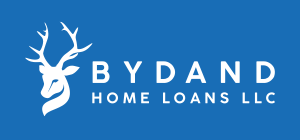
How Much Does Closing a Mortgage Actually Cost?
Closing costs are any fees paid to have your loan approved. Mortgage closing can be as low as 2% of purchase price, or it may be higher depending on what type of mortgage you choose and if there is insurance involved in the process. Continue reading for more information on this topic.
What Are Closing Costs?
Throughout your home purchase, third parties such as your real estate attorney and mortgage lenders perform services. Closing costs include the fees these professionals (as well as others) charge for these services to finalize the real estate transaction and your home loan.
- Closing costs are the fees and charges in excess of the purchase price of the property due at the closing of a real estate transaction.
- Both buyers and sellers may be subject to various closing costs.
- Closing costs may include fees related to the origination and underwriting of a mortgage loan, real estate commissions, taxes, and insurance premiums, as well as title and record filings.
- Closing costs must be disclosed in advance by law to buyers and sellers and agreed upon before a real estate deal can be completed.
How Much You'll Pay in Closing Costs
The total closing costs paid in a real estate transaction can vary widely, depending on the home's purchase price and loan type. In some cases these expenses come out to 1% or 2%. Buyers should expect to pay between 2% and 5% of purchase price in closing costs.
Specific closing costs of a real estate transaction can be daunting, but luckily there’s an easy way to understand them: they’re outlined in the disclosure sections on each side and determined by whether you buy or sell.
The mortgage closing costs vary by lender, but the total loan amount and interest rate must be included. Your monthly payment schedule will also appear on this disclosure from your bank or broker as well!
Mortgage lenders are required to provide a number of documents with important information for consumers when they’re buying their home: Loan Estimate & Closing Disclosures- This document provides an overview of what you'll pay over time including principal balance owed at settlement as well as fees incurred during origination such as initiation fee/application consultation fee among others.
When Does a Seller Pay Closing Costs?
Sellers will almost always pay the real estate agent commissions, prorated real estate taxes and transfer taxes. Other fees that sellers could be required to pay are home warranty and any fee associations that the property belongs to.
Beyond the obvious costs to buy and sell a home, there are other expenses that can be quite costly. These might include real estate commissions as well as title preparation fees for either party in the process of buying or selling their house, ultimately it’s all about negotiation!
Mortgage Refinance Calculator
Visit our purchase/refinance calculator to use this tool – Mortgage Calculator
How to Reduce or Avoid Closing Costs
When you've spent months or even years saving for a down payment, searching for the perfect property and going through due diligence to make sure it’s everything that YOU want – paying closing costs can be an unwanted surprise. With all of this in mind- many people would like to reduce their expenses as much as possible by trying to cut corners somewhere else.
Closing cost avoidance isn’t always easy; however there are ways around them! You should never neglect taking advantage of opportunities such as veterans’ discounts on homes. So other ways you can cut closing costs are:
- Using seller financing
- Ask for a rate with a larger lender credit
- Search for different title & escrow options
What is included in Closing Costs?
The specific list prices vary from transaction to transaction based on individual buyer/seller needs such as length time spent at closing, amount paid up front vs through escrow account financing accounts established during contract negotiations. The most common fees you can expect to see are below:
- Appraisal Fee
- Inspection Fee
- Loan Origination Points
- Mortgage Discount Points
- Mortgage Insurance Premium
- Prorated Real Estate Taxes
- Real Estate Commissions
- Recording Fee (may be state dependent)
- Stamp Tax (may be state dependent)
- Survey Fee (may be state dependent)
- Title Fee (may be state dependent)
- Title Insurance (may be state dependent)
The Bottom Line
Closing costs can be a huge expense for buyers, especially if they're not adequately prepared. The good news is that the closing process varies depending on your specific purchase agreement and type of property you're buying. If you want to avoid hefty fees like these next time around, it might make sense to talk with an expert who specializes in this area before making any decisions about how much money or what kind of home loan option you should use when purchasing a new house.

